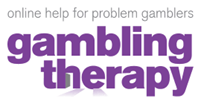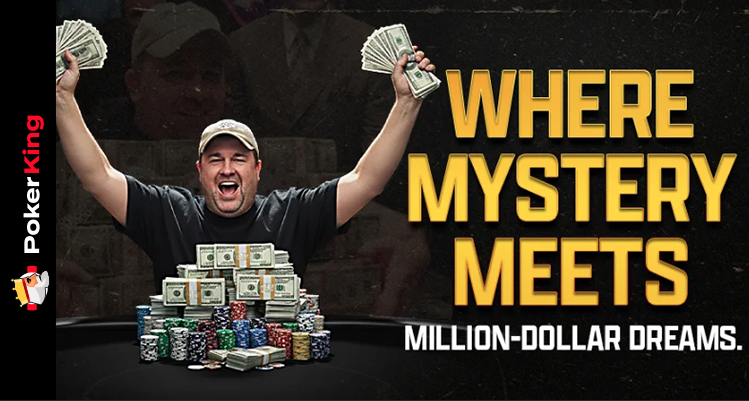

Responsible and safe gaming

Responsible and safe gaming
Thousands of people gamble or invest their time and money in games of chance every day, not only for entertainment but also as a way of socializing. However, this practice is not healthy for everyone, since there is the possibility that some people follow behaviors that are not very beneficial for their personal life, causing adverse circumstances in their economy and even health or family and social relationships.
That is why at Habwin we want to warn you of the dangers that gambling can unleash for some people, and help you as a user to play safely and responsibly. All the rooms we work with are spaces where you can access reliably, but not only that, it also has personalized strategies where you feel comfortable and where you can find help if you need it in order to reduce the risks of addiction and offer treatment for those who develop these behaviors.
Keeping yourself protected against risks is part of our task and education in the game is a key concept for raising awareness for the user and their environment. It is important that you remember that the game is for fun and it is not a means by which to earn money so you must always take into account the consequences of losing, and above all avoid playing to recover the lost money. It is also important that you monitor the time and money you invest while playing to detect any changes in your behavior.
Some of the following questions may serve as a warning if you think you have a gambling problem:
This is a good solution to stay true to your decision once you are clear that you want to abstain from the game for a while, since it will prevent you from reopening accounts in the Rooms, which due to responsibility must be aware of all those players registered in the base of data of said organism. It is a commitment that both the user and the Rooms must maintain to protect you.
On the other hand, there are other added mechanisms to help keep away from the game, such as Gamblock, an application that blocks gambling sites, or another type of parental software as in the case of Cybersitter and NetNanny.
FEJAR
The Spanish Federation of Rehabilitated Gamblers is the union of several Associations and Federations of regional Associations, throughout the Spanish territory. The main objective of the Federation is to unify criteria and actions between Associations to better defend the interests of people affected by dependence on games of chance.
Jugar Bien
It is a page managed by the Directorate General for the Regulation of Gambling where you can find useful information about gambling and the associated risks. For more information, visit https://www.jugarbien.es/
Gambling Therapy
Provides online advice and support in multiple languages. For more information, visit GamblingTherapy.org
Gamblers Anonymous
It is about a group of people who have come together to share their experience, strength and hopes with the rest so that they can solve their common problems and help others to recover from a problem with gambling. You can find an international alphabetical list of meeting venues here.
-
Do you feel that you think more about playing than about working, going out with your friends or being with the family?
-
Do you get nervous when you lose? Do you feel the urge to play again immediately?
-
Do you use money that you need on other things to play?
-
Do you lie when they ask you how long you have been playing?
-
Do you feel that you have no other hobbies?
-
Do you use the game to isolate yourself from your day-to-day problems?
-
Are you frustrated when you don't win?
If your answer is mostly yes, you have a good chance of developing a gambling problem if you haven't already. In this case you should seek professional help as soon as possible, putting yourself in the hands of experts in time will prevent you from going to more. You should also consider requesting self-exclusion, this is the first step in accepting that you have a problem. In addition, the following tests recommended in some rooms can also be used to measure the degree of dependence you have on the game:
Another important aspect to assess is the fact of playing in rooms that offer daily income limits, which will allow greater control over your income and expenses in the game.
Taking a break when you need it is a good solution when we suspect that we have increased the pace of play. There are many players who take breaks from a month to a year, and in most rooms you can request the temporary blocking of access to your account completely voluntarily, so that you do not have the temptation to break your own commitment and be able to recover your account after said period has expired.
If you also wish, you can register in the General Registry of Gambling Access Bans by clicking on the following link, which will verify your self-exclusion for at least six months, after which you can request cancellation: https: //sede. Ordencionjuego. gob.es/tramite/login/inicio.jjsp?idConvocatoria=10.
If you decide to exclude yourself directly from the Rooms themselves, you can do so with a minimum period of 12 months, without a maximum time limit, which may be an indefinite period. During that time also, you will not receive commercial communications from us or from any Room associated with us. You can request it here
Regarding the security of your account, most rooms have security standards verified by numerous firewalls and powerful data encryption to prevent manipulation and criminal activities.
To help you make your account more secure, keep the following tips in mind:
-
Automatically lock your computer to protect it from unauthorized use.
-
Keep your access data (username, password and security question) well, but do it in a safe place where no one has access.
-
Never share your credit card details.
-
Remember to leave the room when you have finished playing and do not leave your login plugged in.
-
Never save the password in the login lobbies.
-
It is advisable to have different profiles for each of the people who use the same device or computer.
-
Change your password often.
If you think you may have gambling problems or suspect that someone close to you may have it, you can find help at the following links:
To obtain more information about Responsible Gaming and to give guidance to people (affected or family members) with problems due to Gambling, call 900 533 025, a toll-free number with 24 hours a day, 365 days a year.



For more information on Responsible Gaming, call 800 098 861, a toll-free number for customers located in Spain..
You may also like

Molly's Game: one of the best poker films
Molly's Game is one of those films that grabs the viewer from the very beginning. The frenetic pace of the film as the minutes tick by and Sorkin's ability to trap the viewer and transport him or h...

The 5 players with the most WSOP bracelets
The World Series of Poker is one of the most prestigious poker competitions. It is where a large number of professional players meet to compete at the tables and test their skill, ability and strat...

Poker ranges: their meaning
Poker ranges are understood as the classification given to the possible hands that an opponent may have and that can be used against us. To make a correct reading of poker ranges it is essential to...













